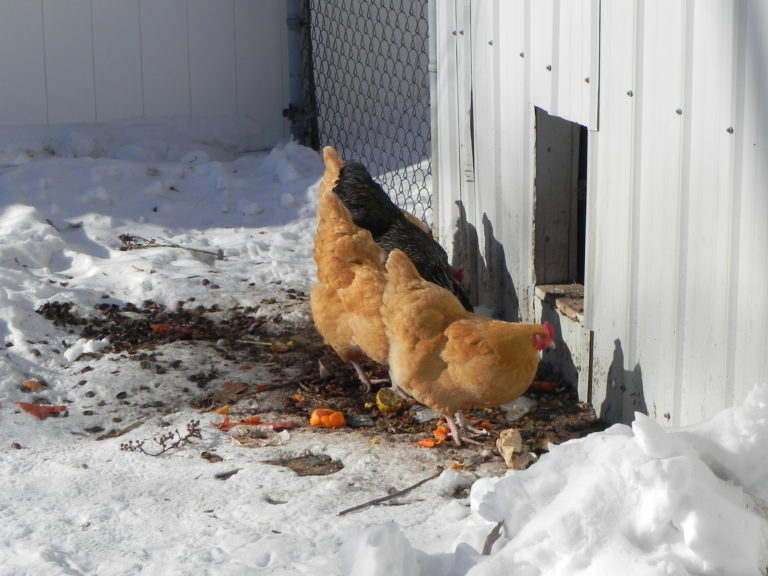Chickens in Winter. Water: Keep it Flowing!

Like all living things, chickens need water to thrive. But keeping your hens hydrated in winter can be a challenge when temperatures plummet.
Consider these tips to keep the fluids flowing, even in the coldest climates.
Above all, make sure your girls always have access to water that is fresh, clean and unfrozen.
Why Water Matters
Granted, chickens don’t drink as much water in winter. But abundant liquid water is essential for a variety of reasons.
First is egg production. Lack of water…even for just a matter of hours…can throw off egg laying, which may already be comprised due to molt and waning sunlight.
This thinking applies to meat birds, too. Without water, they won’t have as much of an appetite and won’t grow as big.
Lack of water can also cause problems with digestion and a chicken’s ability to metabolize food. Chickens need water to help soften and dissolve their feed, and keep it moving smoothly through their crop.
Fresh Not frozen
Access to fresh, liquid water 24/7 is especially important because chickens don’t drink large amounts all at once.
They take in small amounts frequently. That’s impossible to do if the water bowl keeps freezing.
You have two choices to prevent the problem: Haul heavy buckets from a distant source and replace the water each time it freezes, or use an electrically heated chicken or pet waterer.
The latter are thermostatically controlled to keep ice from forming. (NOTE: Curious chickens have been known to unplug heated waterers.) In really cold locales, some chicken owners rotate two waterers. One stays in the coop half the day and is rotated out with a fresh one from indoors for the second half of the day. The waterer that gets removed then sits indoors to thaw, if needed.
Also keep in mind that even if your coop is heated or has a heat-producing bulb, the warmth may not be evenly distributed. If you have extremely chilly winters, always check the water bowl to make sure it’s liquid or not covered in an icy layer. While some chickens will “eat” snow, it’s unlikely they’ll ingest enough for adequate hydration.
Pecking Order and Water
New chicken owners may not realize that basic flock psychology can hinder water access. In fact, in any flock of chickens, there is a pecking order, Alpha on the top, Omega on the bottom, and everyone else in between the two extremes. This is seen initially with baby chicks. If there is a weak chick, the rest of the flock will eliminate it from the gene pool. “Vote her off the island,” so to speak.
The flock may do this as adults, too, if they sense the need to eliminate another adult from the gene pool (even a healthy, egg-producing hen). One way they do this is to keep the hen in question from drinking. Thankfully, wintering birds will expire less quickly from dehydration than in summer. You can help reduce the chances of this by adding a few extra watering stations that allow more options for drinking. This simple step can be key to keeping the entire flock healthy.
Along these lines, make sure your coop is big enough to accommodate your flock. A variety of issues may cause pecking or other aggressive behaviors. One common cause is possible changes in weather (winter’s cold) that would force the birds to spend more time indoors, where crowding may trigger aggression… and limit some birds’ access to water.
Keep the Coop Dry
While keeping water bowls filled with non-frozen water is critical, so is keeping that water in the bowl. Wet living conditions for chickens can foster cold and disease. Unfortunately, the downside to some electric water dishes, is that the birds can easily tip them over. A simple, level cradle made from scrap wood can solve the problem.
Your specific winter conditions (from mild to downright miserable!) will dictate what’s needed to keep your hens hydrated. As ways, stay diligent about flock care and you’ll keep them happy and healthy until warmer weather arrives.
